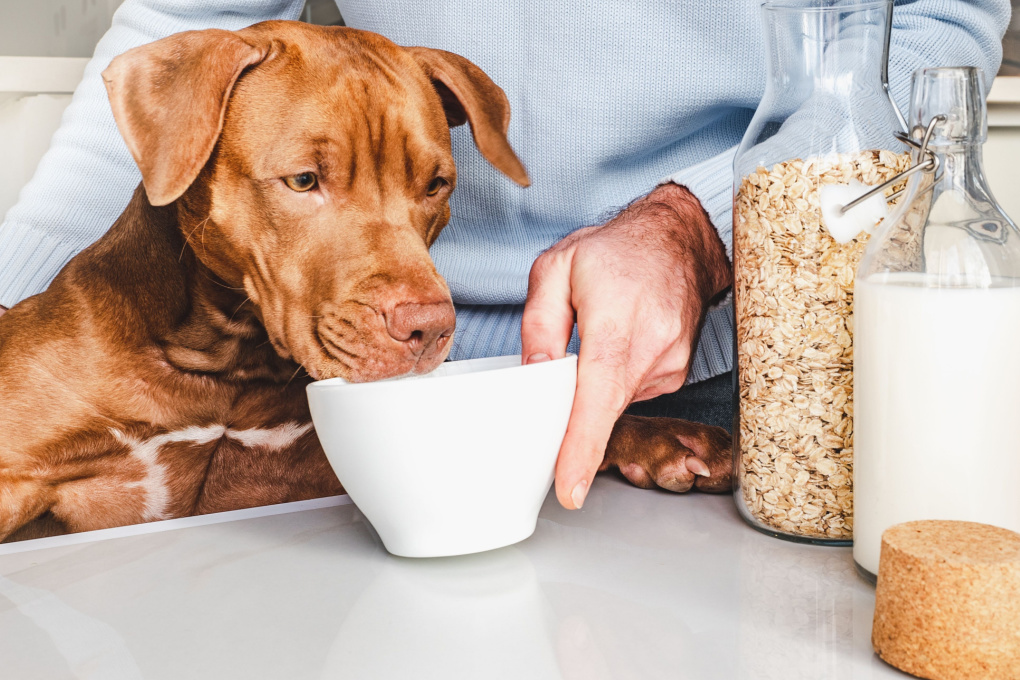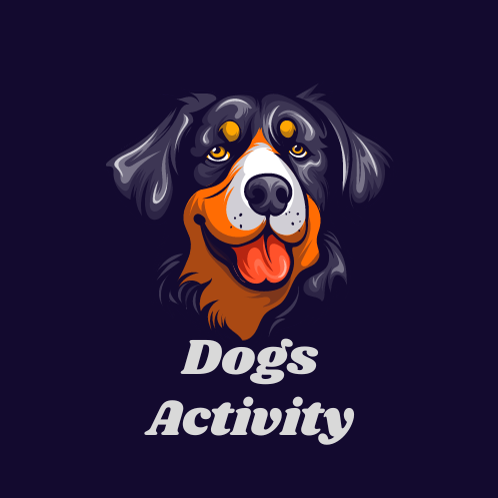
Introduction:
The relationship between humans and their canine companions is built on trust, companionship, and shared experiences. As pet owners, we are responsible for the health and well-being of our furry friends, and part of this responsibility involves understanding what foods are safe and suitable for our dogs. In recent years, there has been a surge in alternative milk options, including oat milk, for human consumption. This leads pet owners to wonder: Can dogs have oat milk? In this comprehensive guide, we will explore the nutritional aspects of oat milk, the dietary needs of dogs, and whether oat milk is a suitable addition to their diet.
- Understanding Oat Milk:
Before delving into whether dogs can have oat milk, it’s essential to understand what oat milk is and its nutritional composition. Oat milk is a plant-based milk alternative made from whole oat grains or oat groats. The process involves soaking and blending oats with water, followed by straining to remove solid particles, resulting in a creamy, lactose-free milk substitute.
a. Nutritional Components: Oat milk is often praised for its nutritional profile, including vitamins (such as B vitamins), minerals (including calcium and iron), and dietary fiber. It is also a common source of carbohydrates.
b. Lactose-Free: One of the significant advantages of oat milk is that it is naturally lactose-free, making it suitable for individuals who are lactose intolerant.Understanding the nutritional content of oat milk is the first step in determining its compatibility with a dog’s diet.
- Can Dogs Consume Oat Milk?
While oat milk is generally safe for human consumption, the question of whether dogs can have oat milk is more complex. Dogs have specific dietary requirements that differ from those of humans. Key considerations include:
a. Lactose Intolerance in Dogs: Unlike some humans, dogs are not lactose intolerant. However, as carnivores, their digestive systems are not designed to process large quantities of lactose. This means that while they can digest lactose to some extent, excessive amounts may lead to digestive issues.
b. Oat Milk Ingredients: The ingredients used in commercial oat milk products can vary. Some may contain additives, sweeteners, or flavorings that are not suitable for dogs. It's crucial to examine the ingredient list before offering oat milk to your canine companion.
c. Dietary Needs of Dogs: Dogs require a balanced diet that primarily consists of high-quality dog food designed to meet their specific nutritional needs. While some human foods can be incorporated into their diet as treats, it's essential to ensure that these additions do not compromise their overall nutrition.- Nutritional Considerations for Dogs:
Understanding the nutritional needs of dogs is paramount when assessing the suitability of any food item, including oat milk, in their diet. Key nutrients that dogs require for optimal health include:
a. Protein: Dogs are carnivores, and protein is a crucial component of their diet for muscle development, maintenance, and overall energy.
b. Fat: Dogs need essential fatty acids for various bodily functions, including coat health, joint support, and energy.
c. Carbohydrates: While dogs do require carbohydrates for energy, their primary source of energy should come from protein and fat.
d. Vitamins and Minerals: Dogs need a range of vitamins and minerals for proper growth, immune function, and overall well-being.Assessing the nutritional content of oat milk in relation to these essential components is vital to determine its potential role in a dog’s diet.
- Benefits of Oats for Dogs:
While oat milk may not be an ideal choice for dogs due to its processing and potential additives, the inclusion of oats in a dog’s diet can have some benefits:
a. Dietary Fiber: Oats are a good source of dietary fiber, which can contribute to healthy digestion in dogs, aiding in the prevention of constipation.
b. Nutrient Content: Oats contain various vitamins and minerals, including B vitamins, iron, and manganese, which can complement a dog's overall nutrient intake.
c. Safe for Most Dogs: Plain, cooked oats are generally safe for dogs and can be a suitable addition to their diet in moderation.While the benefits of oats can be advantageous, it’s crucial to distinguish between plain oats and processed oat milk when considering incorporating them into a dog’s diet.
- Potential Risks of Oat Milk for Dogs:
Despite the potential benefits of oats, offering oat milk to dogs comes with certain risks and considerations:
a. Lactose Content: Some commercial oat milk products may contain added sugars or sweeteners that can be harmful to dogs. Additionally, the lactose content in oat milk may lead to gastrointestinal issues if consumed in excess.
b. Additives and Flavorings: Many commercial oat milk products contain additives, flavorings, or even xylitol, an artificial sweetener toxic to dogs. These ingredients can pose health risks and should be avoided.
c. Digestive Upset: Dogs may experience digestive upset, including diarrhea or vomiting, if they consume large quantities of oat milk or if they are sensitive to certain ingredients.Careful examination of the specific oat milk product and consideration of potential risks are essential before introducing it into a dog’s diet.
- Moderation is Key:
As with any human food offered to dogs, moderation is crucial. If you decide to share a small amount of plain, unsweetened oat milk with your dog, consider the following:
a. Introduce Gradually: If you're introducing oat milk for the first time, start with a small amount to gauge your dog's tolerance and monitor for any adverse reactions.
b. Monitor for Digestive Issues: Keep an eye on your dog for any signs of digestive upset, including changes in stool consistency, vomiting, or excessive gas.
c. Plain and Unsweetened: Opt for plain, unsweetened oat milk without additives or flavorings. Avoid products with artificial sweeteners like xylitol, as these can be toxic to dogs.By exercising caution and offering oat milk in moderation, pet owners can better assess their dog’s individual tolerance to this alternative milk.
- Alternatives to Oat Milk:
While oat milk may not be the ideal choice for dogs, there are alternative ways to provide variety in their diet without compromising their health:
a. Plain Cooked Oats: Offering plain, cooked oats as an occasional treat can provide the benefits of oats without the potential risks associated with processed oat milk.
b. Fruits and Vegetables: Many dogs enjoy fruits and vegetables as treats. Options like blueberries, carrots, or apple slices can add variety to their diet.
c. Safe Human Foods: Some human foods, such as plain yogurt or lean meats, can be suitable treats for dogs when offered in moderation.Exploring safe alternatives ensures that dogs receive variety in their diet without exposing them to potential risks associated with certain human foods.
- Consulting with a Veterinarian:
When considering introducing any new food item into a dog’s diet, especially non-traditional items like oat milk, consulting with a veterinarian is crucial. Veterinarians possess the expertise to assess a dog’s individual health status, dietary needs, and potential sensitivities or allergies. Seeking professional advice ensures that decisions regarding a dog’s diet are based on their specific requirements, promoting their overall well-being.
a. Customized Recommendations: Veterinarians can provide personalized recommendations based on factors such as a dog's age, breed, weight, and existing health conditions.
b. Addressing Specific Concerns: If a dog has known allergies or sensitivities, a veterinarian can offer guidance on whether oat milk or other alternative foods are suitable and safe.
c. Monitoring Health Changes: Regular veterinary check-ups allow for the monitoring of a dog's health, enabling prompt adjustments to their diet if needed.By involving a veterinarian in dietary decisions, pet owners can make informed choices that prioritize the health and longevity of their beloved canine companions.
- Homemade Oat Milk for Dogs:
For pet owners who are enthusiastic about exploring oat milk for dogs, preparing a homemade version offers more control over the ingredients. A simple, homemade oat milk recipe for dogs may involve:
a. Ingredients: Rolled oats, water, and optional items like honey (in moderation) for sweetness.
b. Preparation: Soak rolled oats in water, blend the mixture, and strain to remove solids. The resulting liquid can be offered to dogs in small amounts.
c. Avoid Additives: Homemade oat milk allows pet owners to skip additives, sweeteners, or flavorings present in commercial products.However, even with homemade oat milk, moderation and attention to potential sensitivities remain crucial, and it is advisable to consult with a veterinarian before incorporating it into a dog’s diet.
- Exploring Nutritional Alternatives:
Dogs benefit from a diverse and nutritionally balanced diet. While oat milk may not be a staple in their nutrition, exploring other nutrient-rich alternatives is an excellent way to add variety:
a. Bone Broth: Rich in nutrients and appealing to many dogs, bone broth can be a flavorful addition to their meals.
b. Coconut Milk: In moderation, plain coconut milk without additives may be an alternative milk option for dogs.
c. Vegetables: Incorporating dog-friendly vegetables, such as pumpkin or sweet potatoes, into their diet provides both nutritional value and variety.These alternatives not only contribute to a balanced diet but also cater to a dog’s taste preferences and nutritional requirements.
- Training Treats and Rewards:
When contemplating introducing non-traditional items like oat milk into a dog’s diet, considering them as occasional training treats or rewards can be a practical approach. Using small amounts of oat milk as a reward during training sessions reinforces positive behavior and creates a positive association with this alternative milk.
a. Portion Control: Using oat milk in small quantities ensures that dogs receive the positive reinforcement without compromising their overall diet.
b. Training Benefits: Associating oat milk with positive experiences during training helps strengthen the bond between a dog and their owner.By incorporating oat milk as a training treat, pet owners can strike a balance between offering a unique reward and maintaining the nutritional integrity of their dog’s primary diet.
- Conclusion: Nurturing a Balanced Diet for Dogs:
In the pursuit of providing optimal care for our canine companions, the question of whether dogs can have oat milk prompts a deeper exploration of their dietary needs and preferences. While oat milk, in moderation and without additives, may pose minimal risks to some dogs, the primary focus should remain on a nutritionally balanced and species-appropriate diet.
The journey of understanding what dogs can consume involves ongoing research, consultation with veterinarians, and thoughtful consideration of individual needs. As responsible pet owners, our commitment to the well-being of our dogs involves making informed choices that prioritize health, happiness, and the longevity of our cherished furry friends.
In conclusion, while the inclusion of oat milk in a dog’s diet requires careful consideration, the broader exploration of alternative foods and treats is an opportunity for creativity and variety. By maintaining awareness of a dog’s nutritional requirements, consulting with veterinary professionals, and approaching dietary decisions with diligence, pet owners can provide a nurturing and balanced diet that enhances the overall quality of life for their canine companions.
Conclusion:
In the quest to provide the best care for our canine companions, understanding the nuances of their diet is paramount. While oat milk may be a popular choice for humans seeking plant-based alternatives, its compatibility with a dog’s diet requires careful consideration. The primary focus should always be on meeting a dog’s specific nutritional needs through a balanced and high-quality dog
food. If pet owners choose to introduce oat milk or other human foods into their dog’s diet, it should be done cautiously, with attention to ingredient lists and potential risks.
In conclusion, the question of whether dogs can have oat milk highlights the importance of informed decision-making in pet care. As responsible pet owners, our commitment to the health and well-being of our dogs involves continuous learning, thoughtful choices, and a keen awareness of our furry friends’ individual needs. By approaching the question of oat milk with diligence and consideration, we can ensure that our dogs enjoy a diet that promotes optimal health, happiness, and a strong bond between human and canine companions.


